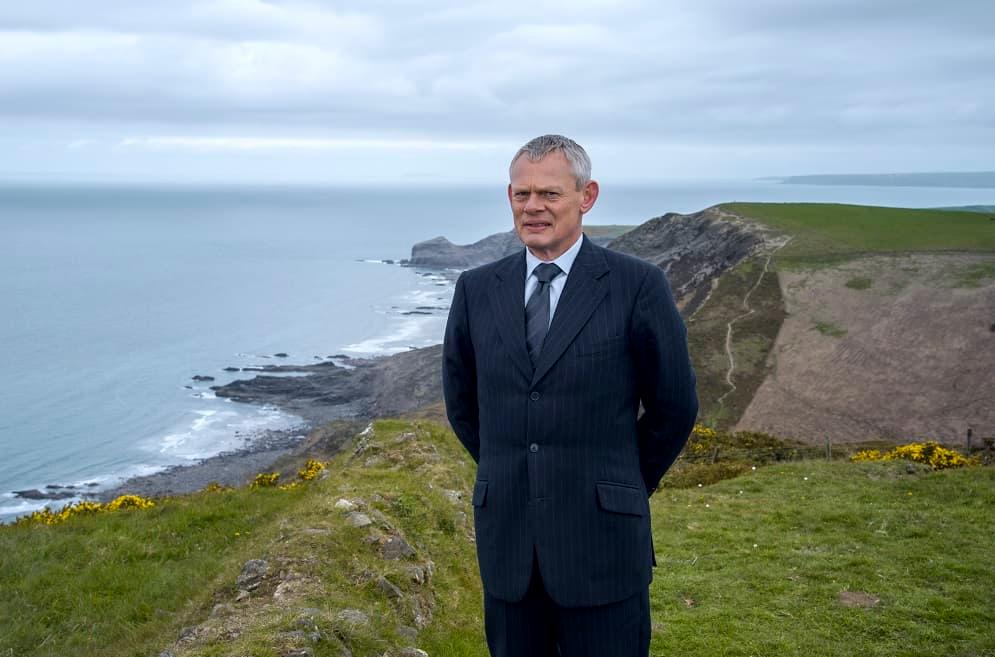
There should be substantial irony in my posting on Christmas Eve an essay lamenting organized Christianity’s abandonment of its solemn duties. I didn’t plan to have the day and the theme run head-on into each other. In fact, I wasn’t fully aware that Christmas week was approaching when, in closing my last post, I wrote of…
a theme which deeply preoccupies me, and to which I would like to return soon: the betrayal of organized Christianity. Our betrayal by organized Christianity. “Humanitarian grounds”… : how many of us have heard from pulpits that Christ compels us to relinquish our earthly boundaries and welcome every wanderer to our hearth? “Brotherly love”: how many have heard that Christ preached a religion of peace and would deplore the presence of self-defensive weapons on our person or in our home? “Love-affirming, life-affirming”: how often have churches responded to a dictatorial command that they shut down while COVID rages with the meek acquiescence of, “Oh, yes! Whatever we can do to save lives!” Some phrase worthy of gracing a marquee in Podunk Baptist’s weekly message is wrapped around stupidly ineffectual, morally tainted, and physically destructive behavior… and we’re sent home with our painless lobotomy to marvel and drool at the collapse around us.
Why not just leave the subject alone for another week? People don’t read blogs over “the holidays”, anyway; and I, like most of you, have family gathered around the hearth today in an abundance that rarely occurs any longer. Just let it ride for now: laugh, hug, sing, eat… can’t we do that just for a bit, when it’s almost never done throughout the rest of our sad year?
And yet… well, here’s why I see no irony in the timing of my protest against the Church: because the celebration of Christmas should be about the birth of Christ, of all implied therein—and warm embrace of family during a wintry gathering of the clan is really not anywhere among those implications. On the contrary, the Festival of the Sun’s Return after the Winter Solstice is a major celebration on the pagan calendar (so major that Christian missionaries decided to adopt it as Christ’s birthday, too, rather than try to explain to their crude proselytes that the earth’s rhythms are not the highest expression of God’s will). It seems to me, rather, that the irony lies in our trying, year after year after year, to pretend that all is not lost in formal Western Christendom if only we can continue to bring Aunt Gussie to the table annually, to get Liam and Caroline out of their rooms and off their iPhones while presents are unwrapped, and to record (on the latest device) Laurie’s fitting a sweater on her dazed grandmother for a posterity that couldn’t care less. We’ll trudge through such personal rituals once more, because we desperately need them. We’ve never needed them more. But in revisiting them, we are very mistaken to suppose that we remain, after all—after still another year of giving vital ground—Christians at heart. We remain humans… but not every human is a Christian. That’s the irony: the dwindling evidence of our humanity impresses us more and more as incontrovertible evidence of our faith. It’s not, you know. It’s just not.
I invite you to join me in a simple exercise. Think of any ridiculously naïve hope or “vision”—one so absurd that a child who should cling to it beyond fourth or fifth grade might be thought a little behind the developmental curve. Let’s try, “I want peace everywhere, and forever. No more wars! We have to stop fighting.” Now look for some resonance of this childish platitude in the contemporary Christian church. Not very hard to find an echo, is it? “Christ enjoined us to live in peace. If we are the people of faith we claim to be, then we should not be deterred in seeking that peace by taking apparent existential risks.” Do we need to secure the power grid? Why, no! Why should we assume that other societies in the world want to harm us? Do we need to update our pitifully decrepit nuclear arsenal? Heavens, no! Let it rust away! The only reason other nations build such Doomsday weapons is because they see us doing so. It’s time to lead the way, to offer a Christian example.
And so the day comes when we have a choice between having all our children injected with computer chips to serve some secular overlord day and night or, in the event of non-cooperation, being annihilated. Yes, all of us owe God a death, sooner or later. But the “visionary” Christian leaves innumerable masses of innocents with no alternative to denying their spiritual identity other than Auschwitz. Is that really how faith works?
When our southern border was being inundated by unvetted immigrants (as it will soon be in exponentially greater volume), the “good Christian” raised the cry in public opinion polls closely followed by political hacks, “The children come first. These are children in need. Christ said, ‘Suffer the little ones to come unto me.’ We dare not turn these children away.” No… so a child-abuse trap was created, stupidly connived at by the “good Christian”, wherein criminal thugs bought or stole youngsters from their parents, tutored them to say Este hombre es mi papacita, sí, often shuttled them back across the border to run the same scam again, and along the way beat or raped them to secure abject obedience. And this humanitarian nightmare, as I say, was aided and abetted by good little suburban Christians who gave themselves a big virtue-hug at night before dozing off to sweet dreams.
Again, no awareness of the depth of human depravity: not much awareness, indeed, that depravity is embedded in the nature of the human animal. The concept of original sin was warped to cover all the curmudgeons and sourpusses who resisted the “vision”, who declined to take the “leap of faith”. It was never allowed to cast a shadow over the creatures of envy and lust at society’s fringe who had always waylaid utopian visions before.
Speaking of implanted computer chips… a friend sent me a link about a month ago to a video that spliced together a series of candid utterances, made by “visionaries” as recognizable as Bill Gates, in favor of extracting and inserting information directly into the world’s human masses. An attractive young woman struck me, especially, with her fervent insistence that “we need to take this step if we are to create the world we want.” I wouldn’t necessarily suspect any of these people of being Christian. The shame of it all is that I wouldn’t necessarily suppose that a mainstream Christian today would roar in protest. He should observe that such as we are do not create worlds—that the job has already been filled, and that our puny efforts to encroach upon it must always send infinite ripples of greed, arrogance, lust for power, and all the rest through the evolutionary brew. Instead, I can well imagine our casual Christian appropriating the language of “a better tomorrow” the way the early missionaries appropriated the Return of the Sun for Christ’s birthday. “Hey, that’s my gig—a better tomorrow! Yeah, we can do that! Eradicate poverty, extend health care to everyone, see that no child is left behind… we can all get to a better place if we suppress our egotism and serve Christ.”
And on and on. May I assume that this very brief characterization (which, alas, is no caricature) has brought two points to the surface? One is that late Western Christianity endorses a categorical suspicion, if not rejection, of limits. Our faith (sayeth the New Age preacher) exhorts us to admit no traditional restriction to the possibilities. If we only dream bravely enough, we can create the world of our dreams—a perfect world, without war or poverty or disease; for this is what Christ called us to do. Halleluiah, halleluiah!
The second point is that no effort is invested among such “faithful” in pondering the failures generated by “dream faith”. A particular peace hasn’t lasted because elements among us have too little faith; perfect health hasn’t been restored because elements among us have refused to join in an unprecedented initiative (e.g., universal masking, vaccinating, and locking down). The dream is always insulated from scrutiny. Why, Christ walked on water! Do you suppose He could have done that if the least thought about sinking had entered His mind?
The seamless fusion of “dream faith” with the secular-progressive political mentality should be evident to anyone with ears to hear. Is it any wonder that the formal, organized Christian church has reliably worked against the Christian worldview over the past four or five decades (with accelerating commitment)? “Social justice” is what matters, not the struggle of each human individual to hear God’s call through the cacophony of unfair circumstances around him. “Love” is what matters in marriage, not the acceptance of several strictures (duty to children, abstinence from other partners, embrace of self-sacrifice, etc.) which severely reduce our future options in our fourscore years on earth.
Every inspiration of “dream faith” is open-ended, and hence impossible to restrain from collateral damage or assess for deficient responsibility. The “believer” is caught in an orgy of star-gazing that spins him into delirium but advances him toward his higher identity not a single step. True faith, by accepting that Creation has thrown up barriers here, here, and here, humbles us as we conform our progress to those barriers and impresses us, ultimately, with the immutable truth that the destination for all our inklings of perfection must be a world beyond this one. He of “dream faith” will not accept—on principle—that perfection cannot reign here and now. He of true faith accepts daily shortcoming and imperfection as the inevitable cost of not yet having arrived in heaven.
Yes, our social regeneration would profit immensely from organized institutions of faith. The latter may even be necessary to accomplish the former. Right now, however, our religious institutions reflect an unbounded faith only in the decadent world for which they were organized. As the old Italian saying goes, we won’t find figs growing on a thistle bush.










